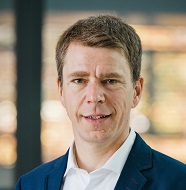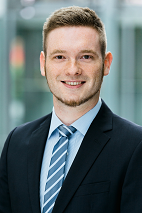Voltage controlled oscillator (VCO) verification
IEEE North Jersey Section MTT/AP Chapter Co-Sponsors the event
New applications are requiring VCOs to support higher frequencies. Since phase noise levels increase with frequency, testing becomes even more demanding in millimeter and THz frequency ranges. This webinar will discuss the challenges of phase noise testing in the D-band, a hot candidate for the next wireless communication standard. Practical examples will illustrate VCO verification and phase noise testing up to the THz region. We will be discussing VCO structures and requirements for verifying your complete design.
Learn about VCO implementations and key performance indicators which have a major influence on the overall system once the VCO gets integrated into an RF or digital circuit. As we discuss testing a VCO, you will hear different approaches and why you benefit from a fully integrated VCO test approach. This webinar is intended for engineers involved with Voltage Controlled Oscillators (VCO) both in designing and integrating into systems. The webinar covers research & development, as well as product verification testing as used in characterization and production.
Date and Time
Location
Hosts
Registration
-
 Add Event to Calendar
Add Event to Calendar
Loading virtual attendance info...
- Contact Event Hosts
-
Ajay Poddar (akpoddar@ieee.org), Edip Niver (edip.niver@njit.edu), Durga Mishra (dmisra@njit.edu), (Anisha Apte (anisha_apte@ieee.org)
- Co-sponsored by IEEE North Jersey Section
Speakers
 Markus Loerner of Rohde & Schwarz
Markus Loerner of Rohde & Schwarz
Voltage controlled oscillator (VCO) verification
This Webinar is intended for engineers involved with Voltage Controlled Oscillators (VCO) both designing and integrating into systems. The webinar covers research & development, and product verification testing as used in characterization and production. With new applications, VCOs have to support higher frequencies. But as the phase noise level increases with frequency, testing becomes even more demanding in millimeter and THz ranges. Therefore, we will discuss the challenges of phase noise testing in the D-band, a hot candidate for the next wireless communication standard. Practical examples will illustrate VCO verification and phase noise testing up to the THz region.
Biography:
Markus Loerner joined Rohde & Schwarz in 2000 and worked as a signal generator product manager in various RF applications from mobile wireless to satellite communications, for both R&D and production use. He holds a degree in electrical engineering from the University of Erlangen-Nuremberg, Germany.
Address:Rohde & Schwarz, , Germany
 Alexander Nähring of Rohde & Schwarz
Alexander Nähring of Rohde & Schwarz
Voltage controlled oscillator (VCO) verification
This webinar will discuss the challenges of phase noise testing in the D-band, a hot candidate for the next wireless communication standard. Practical examples will illustrate VCO verification and phase noise testing up to the THz region. We will be discussing VCO structures and requirements for verifying your complete design. With new applications, VCOs have to support higher frequencies. But as the phase noise level increases with frequency, testing becomes even more demanding in millimeter and THz ranges. Therefore, we will discuss the challenges of phase noise testing in the D-band, a hot candidate for the next wireless communication standard. Practical examples will illustrate VCO verification and phase noise testing up to the THz region.
Biography:
Alexander Naehring is Product Manager for Spectrum-, Signal- and Phase Noise Analysis at Rohde & Schwarz. His focus is on phase noise testing, VCO testing, and satellite communication. He joined Rohde & Schwarz as an application engineer for 5G NR, OTA and antenna testing, channel sounding, and demanding signal processing solutions. Alexander received his master of science degree in electrical engineering, information technology, and computer engineering at RWTH Aachen University (Germany) in 2016.
Address:Rohde & Schwarz, , Germany

